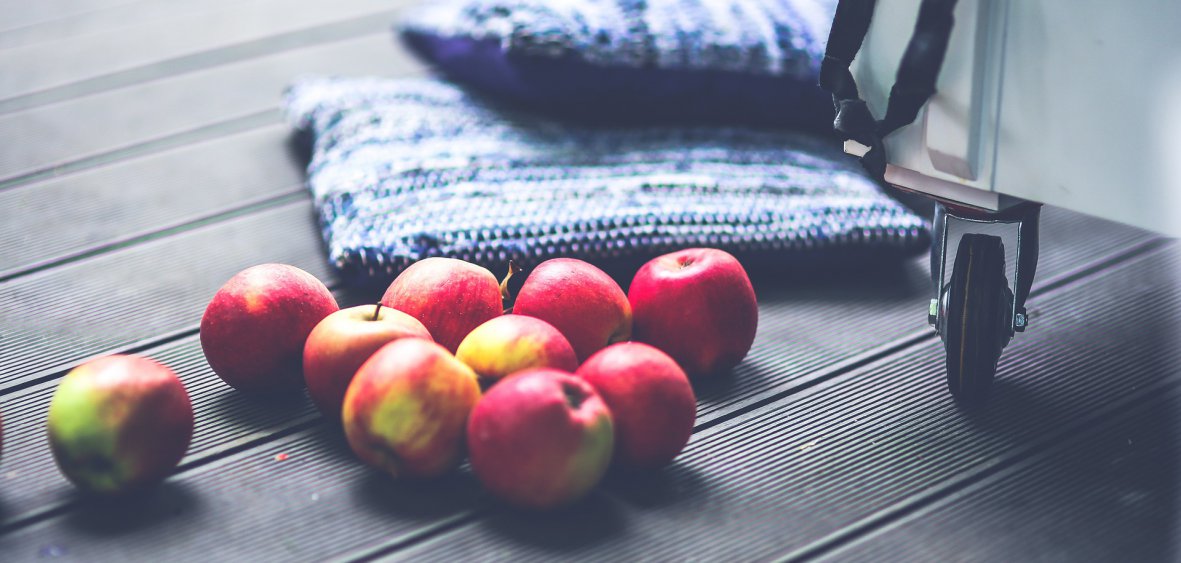 Apple vinegar is a representative of fermented vinegars, i.e. vinegars which, unlike spirit vinegar, are suitable for consumption. Spirit vinegar should only be used for cleaning various appliances at home. Its consumption is associated with a loss of red blood cells, promotes anaemia and disrupts digestive processes.
Apple vinegar is a representative of fermented vinegars, i.e. vinegars which, unlike spirit vinegar, are suitable for consumption. Spirit vinegar should only be used for cleaning various appliances at home. Its consumption is associated with a loss of red blood cells, promotes anaemia and disrupts digestive processes.
Apple vinegar available in stores is a relatively expensive, high quality product, unclaimed with the content of "mother" costs about 10 zł per liter. The homemade way of preparing it can be much cheaper if we have the necessary amount of fruit parts that we do not eat.
How to get started?
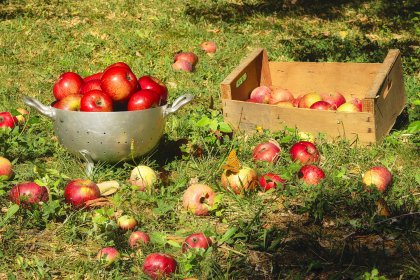 For the preparation of vinegar are suitable the remnants of apples left over from the preparation of fruit chips, juices (pulp) and cucumbers. These parts of the apples can be stored in the fridge for about 2 - 3 days. Apples may turn brown, which is a desirable phenomenon in this case, which speeds up the fermentation process.
For the preparation of vinegar are suitable the remnants of apples left over from the preparation of fruit chips, juices (pulp) and cucumbers. These parts of the apples can be stored in the fridge for about 2 - 3 days. Apples may turn brown, which is a desirable phenomenon in this case, which speeds up the fermentation process.
Put the picked fruits into a pre-brewed jar (remove the petioles, nests and seeds can be left). Pour lukewarm, boiled and sweetened with honey water over the apples. The weight of water should correspond to the weight of the fruit, while honey should be dosed in the amount of 1 teaspoon per glass of water.
Cover the jar with kitchen paper or a cloth to keep the air in. Cover with a rubber band to protect the product from fruit flies. It is a good idea to give the jar a setting date.
Leave the jar at room temperature and wait a few weeks. In most cases, vinegar is ready after 4 weeks. It is important to look into the jar once a day and mix the contents with a wooden spoon.
After the fermentation, pour the vinegar into glass bottles. We do this using a funnel lined with gauze. This way we can be sure that the liquid will not contain fermented parts of fruit.
Vinegar should be stored in a dark and cool place. In such conditions it will survive even several years.
Hygienic conditions are of the utmost importance in the whole process of apple vinegar preparation. Impurities (e.g. hidden in an uncooked jar or an uncooked wooden spoon) can contribute to mould growth.
How to prepare apple balsamic vinegar?
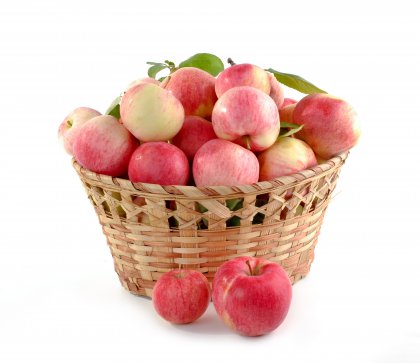 For this type of vinegar we will need a slow-running squeezer. The balsamic version of apple vinegar is made from fermented apple juice.
For this type of vinegar we will need a slow-running squeezer. The balsamic version of apple vinegar is made from fermented apple juice.
In this case we do not sweeten the juice with honey, it is sufficiently sweet in its natural form (an exception can be made for exceptionally sour fruits). The juice obtained in a slow-running squeezer is put aside for fermentation. All you have to do is wait until the rest "gets" by itself.
Impatient people can speed up the fermentation process by adding a couple of tablespoons of apple vinegar to the jar. The best solution is the "mother", i.e. the sludge that collects at the bottom of the vessel.
Vinegar can also be made from other fruits, such as grapes, raspberries, strawberries.
What can I use apple vinegar for?
Unlike harmful spirit vinegar, apple vinegar is rich in pro-healthy ingredients such as vitamins A, C, E and B vitamins, minerals (potassium, magnesium, iron, copper, silicon), enzymes, phytochemicals, acids and pectin.
Apple vinegar is antibacterial and antifungal. It has alkalizing properties. It stimulates metabolism, helps to maintain a proper flora in the intestines, supports the excretion of toxins, increases the level of "good cholesterol", lowers blood glucose levels. It is therefore a product that is worth using to prevent diabetes.
Apple vinegar can be added to salads in the form of dressing. It can also be added to water and consumed as a drink with a little honey.
This product can also be used externally. Combating acne, wash the skin with a tonic with apple vinegar. Prepare the tonic by mixing vinegar and water in equal proportions. With this solution, wash your face in the morning and in the evening.
Thanks to foot baths in a solution of water with apple vinegar, we can get rid of mycosis. The bath should be used daily for 15 to 30 minutes.
Lubricating your legs with a body lotion with apple vinegar helps to reduce the symptoms associated with varicose veins. Apply the lotion in the morning and evening for several weeks.
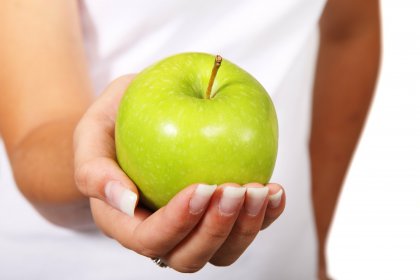 Apple vinegar also gives a beautiful shine if you rinse your hair after washing it with water and vinegar. This way we can also get rid of dandruff.
Apple vinegar also gives a beautiful shine if you rinse your hair after washing it with water and vinegar. This way we can also get rid of dandruff.
Another idea to use apple vinegar is to spread it around the armpits. Vinegar creates great antibacterial protection, and as we know, it is the bacteria that cause the unpleasant smell of sweat. By not allowing them to multiply, we can combat unpleasant ailments without the use of a deodorant.
Household apple vinegar
In addition to its health-promoting effect, apple vinegar, like spirit vinegar, can be used for cleaning and descaling various surfaces. Ideal for cleaning glass, mirrors and disinfection. Removes greasy deposits, rust, mildew and limescale, making it ideal for toilets and bathrooms.
In summer, apple vinegar is also useful for combating fruit flies. Just pour a little liquid into the bowl, cover it with foil and cover it with a fork. Insects like to come to vinegar from fruit, they melt in such a trap, because they cannot get out of it.
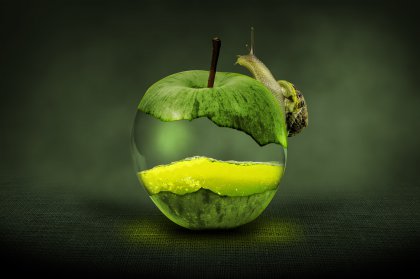
Apple vinegar can also be used to soften fabrics and remove unpleasant odour from the washing machine. Remaining with smells, apple vinegar is perfect for combating unpleasant smells in the fridge, getting rid of the smell from the kitchen board (in this case sprinkle the board with baking soda and pour apple vinegar to form foam. After an hour, remove the mixture and rinse it carefully with water).

